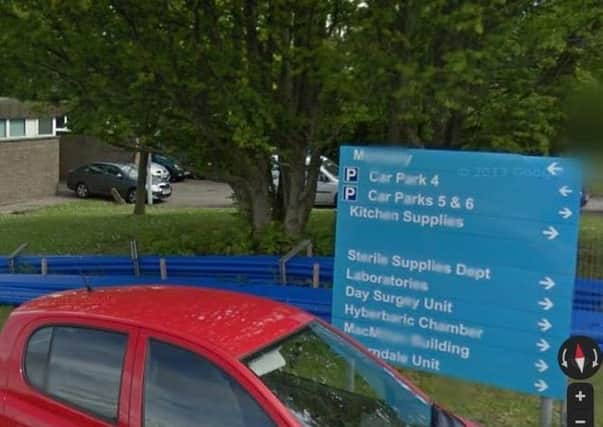Wrong body handed over to funeral director


The mortuary had Northern Ireland’s worst record for errors according to an investigation carried out by this newspaper group.
A total of 11 mistakes were recorded in Northern Ireland over the past six years – five of them at Craigavon Area Hospital.
Advertisement
Hide AdAdvertisement
Hide AdAmong the mistakes recorded at the local hospital were an incident when a fetal specimen was lost in transit between theatres, and another were – due to human error – the wrong body was released to the funeral director.
On one occasion, an organ was discovered in the mortuary which should have been transferred to a research establishment approximately a year earlier.
Four incidents were recorded at the Royal Victoria Hospital in Belfast, and two at the State Pathologist’s Department.
Andy Langford, clinical director for the charity Cruse Bereavement Care, said any errors made could be “very traumatising” for families.
Advertisement
Hide AdAdvertisement
Hide AdMore than 600 incidents were reported at mortuaries licensed to carry out post-mortems in England, Wales and Northern Ireland in the past six years, data released under the Freedom of Information Act shows. This includes more than 200 instances where bodies were accidentally damaged, 68 reports of the wrong body being released and 33 times when a family member or other interested party was shown the wrong body, the data from regulator the Human Tissue Authority shows.
Mr Langford said the post-mortem process could be hard on families at the best of times.
He said there were often important reasons to conduct post-mortems but it could make bereaved relatives feel like their “grief is elongated”.
He said it could be particularly hard, for instance, for people whose faith requires a funeral to be held very shortly after death, as this often was not possible.
Advertisement
Hide AdAdvertisement
Hide AdMr Langford, who has been a therapist for 17 years, said any errors made throughout the process could then compound people’s distress.
For example, he said, it could be “very traumatising” for families who go to a mortuary to view a loved one’s remains but are shown the wrong body.
He said: “If you were standing in a room expecting to view the body of a loved one and you are presented with a person who is recognisably different, you can imagine how that would feel. It is beyond shocking, really.
“I have certainly talked to someone who said they didn’t have words to describe it.”
Advertisement
Hide AdAdvertisement
Hide AdWhile “realistically, people do make mistakes”, he said, mortuaries had to ensure every possible safeguard was in place to prevent them.
The Human Tissue Authority said the number of reportable incidents represented a “very small proportion” of the 315,500 deceased people who entered the care of these mortuaries in England, Wales and Northern Ireland each year.
A spokesperson said: “Although incidents such as these are rare, they are distressing for the families of those involved.
“When this happens, we work with the establishment to ensure that a thorough investigation is undertaken, lessons are learned, and that improvements are made to mitigate the risks of similar incidents happening again.
Advertisement
Hide AdAdvertisement
Hide Ad“Through providing advice and guidance - both during our on-site inspections and via our enquiries function - and in issuing advice and guidance based on shared learning from across the sector, we help to ensure that the risk of incidents happening again and elsewhere is reduced.”
The Department of Justice has been approached for comment but at time of going to press none had been forthcoming.
The Cruse Bereavement Care National Helpline offers emotional support to anyone affected by bereavement - freephone 0808 808 1677.
Comment Guidelines
National World encourages reader discussion on our stories. User feedback, insights and back-and-forth exchanges add a rich layer of context to reporting. Please review our Community Guidelines before commenting.